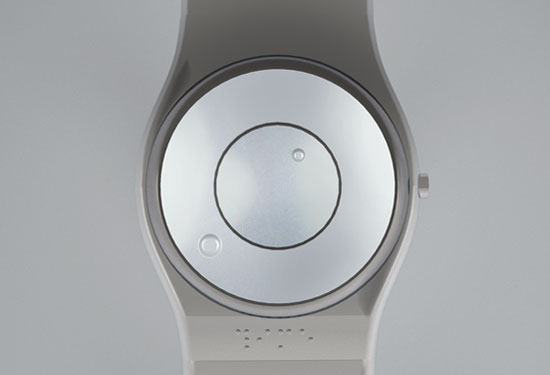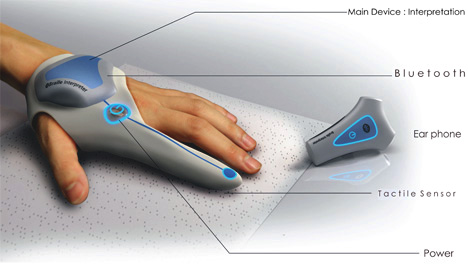The Braille system is a method that is widely used by blind people to read and write. Braille was devised in 1821 by Louis Braille, a blind Frenchman (Wikipedia). Each Braille character or cell is made up of six dot positions, arranged in a rectangle containing two columns of three dots each.
As originally conceived by Louis Braille, a sequence of characters, using the top four dots of the Braille cell, represents letters a through j. Dot 3 is added to each of the a through j symbols to give letters k through t. Both of the bottom dots (dots 3 and 6) are added to the symbols for "a" through e to give letters u, v, x, y, and z. The letter w is an exception to the pattern because French did not make use of the letter "w" at the time Louis Braille devised his alphabet, and thus he had no need to encode the letter "w".

(potential) new Braille technology:

A Braille wristwatch?


BabelBraille?

Or, better yet, learn to write in Braille for a cheaper printer!

UofT technology?!
There's also the traditional Braille desktop embosser printers (to translate, say, a Microsoft Word document into Braille).

How about saving the paper and having a Braille E-book reader?

http://www.engadget.com/2009/03/31/researchers-develop-braille-for-vibrating-touchscreen/

Ummm, is it just me, or is there absolutely no point to have this thing so big? Couldn't the Braille E-book reader be the size of only one or two cells? Just have them refreshing at a rate controlled constant by the reader? Sort of like an morse code signal but more space-time efficient? This would be a fantastic way to miniaturize any book. Time to start learning Braille...
I suppose this idea (of having the page move under the finger, and not vice-versa) could technically apply to a traditional E-book reader as well. Perhaps this was already tried? There must be (?) a psychological familiarity thing intertwined with the "old technology" of a page of words presented infront of you, rather than having them spin and change under your stationary eyes...



No comments:
Post a Comment